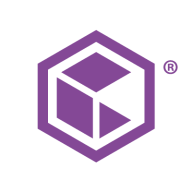

Competing in the cloud data management and recovery category, Commvault Cloud and VMware Live Recovery present differentiated strengths. Commvault Cloud takes the lead due to its extensive cloud integration, robust support, and overall comprehensive data management, while VMware Live Recovery excels in rapid disaster recovery capabilities and streamlined recovery processes.
Features: Commvault Cloud offers a comprehensive suite including extensive cloud integration, global deduplication, and automated updates, designed for complex data environments with seamless public cloud integration. In contrast, VMware Live Recovery focuses on efficient VM recovery during disasters, robust automation, and non-disruptive testing minimizing downtime.
Room for Improvement: Commvault Cloud could enhance its user interface for easier navigability and simplify data set management. Additional improvements in documentation and user training would benefit users. VMware Live Recovery could improve its integration capabilities, simplify its interface, and consider more affordable pricing to enhance competitiveness.
Ease of Deployment and Customer Service: Commvault Cloud supports private, public, and hybrid clouds, offering flexible deployment options and responsive customer service. However, some regional discrepancies exist in support quality. VMware Live Recovery is primarily for on-premises and hybrid environments. While well-regarded for technical support, it lacks the deployment flexibility of Commvault.
Pricing and ROI: Commvault Cloud's premium pricing is justified by potential savings through efficient data management and flexible licensing options, providing a significant return on investment despite high initial costs. In contrast, VMware Live Recovery's higher licensing costs limit cost-effectiveness especially when numerous VMs require protection, although it offers immediate ROI in critical rapid recovery scenarios.
At the pre-sale cycle, we have spocks aligned from Commvault with whom we get in touch, and they provide all the required support that we need.
The number of people who know Commvault Cloud is lesser compared to Veeam.
Customer support has very closed departments, requiring us to shuffle between them to get one thing done because representatives have limited accessibility.
Our team has dedicated personnel for support who engage with the supporting teams.
They are knowledgeable.
The technical support from VMware is very good and operates based on a service level.
I have not faced any downtimes with Commvault Cloud.
Commvault Cloud is highly stable, and I would rate it a ten out of ten.
For our test labs, dev labs, and production, it is very stable.
I would like to see AI capabilities in Commvault Cloud.
I feel that the support is not yet up to the mark, with not enough professional engineers to provide assistance.
It's important for the cost to be justified based on the features used in production.
I would like to see improved integration services with other solutions, such as SIEM management or security monitoring.
The main issue is to improve the approach of resolving solutions.
Commvault Cloud is expensive, and there is room for the price to be 10-15 percent lower than what they are charging currently.
Previously, when acquiring a license for Ethiopian drug supply chains, the price was significantly high, especially after Broadcom joined VMware.
We mostly prefer to recommend this to customers due to ease of use, abundant features, and support.
For cloud-based solutions, the cost seems quite pricey, so we stick to on-premises deployment.
Other features include endpoint solutions, integration with Office 365, ransomware protection, archival for long-term retention, and no ingress or egress charges.
The public cloud acts as a bigger solution for the on-premise while the on-premise acts as a DR for the public cloud workloads.
We can back up unlimited TBs due to our per node license.
If I talk about vCenter and the auto failover of the VMs, such as live migration, that is a very cool feature that we require in our environment because we have different data centers, and if some of the servers fail, they automatically failover and move the VM from one side to another.
It is used for data replication between data centers and allows for quick response in times of failure, ensuring data availability.
The solution offers a rich set of features, well adapted in the market.
| Product | Market Share (%) |
|---|---|
| VMware Live Recovery | 7.2% |
| Commvault Cloud | 9.2% |
| Other | 83.6% |


| Company Size | Count |
|---|---|
| Small Business | 57 |
| Midsize Enterprise | 24 |
| Large Enterprise | 82 |
| Company Size | Count |
|---|---|
| Small Business | 36 |
| Midsize Enterprise | 12 |
| Large Enterprise | 40 |
Commvault Cloud is the ultimate cyber resilience platform built to meet the demands of the hybrid
enterprise. Beyond its core functionality of data backup and recovery across diverse workloads, including applications, databases, virtual machines, and files, Commvault Cloud stands out as a robust defense against ransomware. Going beyond backup, the platform integrates advanced data security features such as encryption, access control, and threat detection, safeguarding against unauthorized access and cyber threats.
With tools for data management, classification, and migration, businesses can optimize storage costs, enhance accessibility, and comply with regulations seamlessly. Boasting cloud integration with major providers like AWS, Azure, and Google Cloud, Commvault Cloud leverages the scalability and flexibility of the cloud for comprehensive data protection and management. The platform's automation capabilities streamline tasks, and its reporting and analytics features provide valuable insights into data usage, potential risks, and optimization strategies. Commvault Cloud is not just a security tool; it is a key component of cyber resilience, enabling organizations to not only protect against cyberattacks but also recover swiftly and minimize the impact of incidents. Elevate your cyber resilience strategy with Commvault Cloud.
We monitor all Disaster Recovery (DR) Software reviews to prevent fraudulent reviews and keep review quality high. We do not post reviews by company employees or direct competitors. We validate each review for authenticity via cross-reference with LinkedIn, and personal follow-up with the reviewer when necessary.